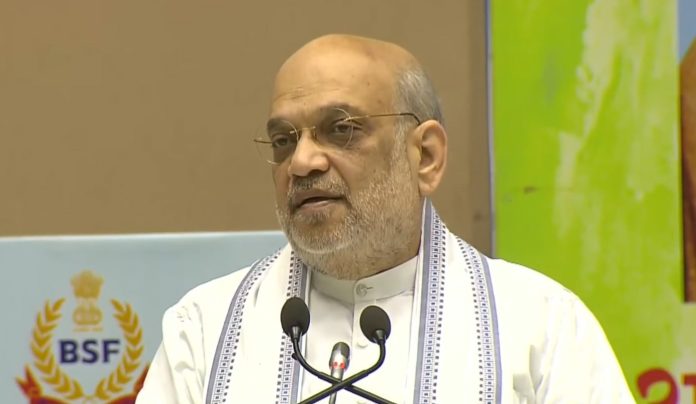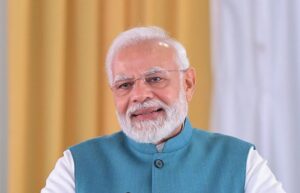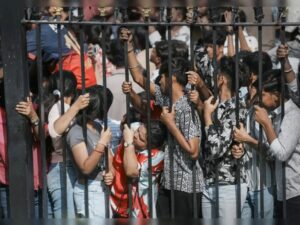



Union Home Minister Amit Shah on Friday asserted that Operation Sindoor has unambiguously exposed the fact that terrorism in India is “completely Pakistan-sponsored.” Delivering the Rustamji Memorial Lecture at the 22nd Investiture Ceremony of the Border Security Force (BSF), Shah praised the BSF and armed forces for their decisive role in safeguarding India’s borders and national security.
“Operation Sindoor has revealed to the world that terrorism in India is not homegrown but absolutely sponsored by Pakistan,” Shah declared in his address.
He lauded the armed forces and BSF for their precision and restraint during Operation Sindoor, noting that Indian forces targeted terrorist infrastructure and not Pakistani military or civilian targets.
“We hit the terror camps in Pakistan. But it was the Pakistan Army that responded, proving its deep-rooted support for these elements. We did not initiate any action against their army or civilians. Our objective was solely to dismantle terror bases,” Shah emphasized.
Context of Operation Sindoor
The May 7 precision strikes under Operation Sindoor were carried out in response to the April 22 Pahalgam terror attack, in which 26 innocent civilians were killed, allegedly after being identified based on their religion. Following India’s targeted strikes, Pakistan launched retaliatory attacks on May 8, 9, and 10, attempting to target Indian military installations.
However, India’s air defence systems successfully neutralized the threats, and in a robust counter-offensive, Indian forces inflicted significant damage to Pakistani military infrastructure, including air bases and radar systems. The two countries agreed on May 10 to cease all hostilities after four days of intense military exchanges.
Continuum of India’s Counter-Terror Policy
Shah framed Operation Sindoor as part of a consistent zero-tolerance policy on terrorism since 2014. He cited the surgical strikes after the Uri attack and the Balakot airstrikes following Pulwama as earlier examples of India’s proactive security stance.
“From Uri to Pulwama, and now Pahalgam, India has shown the world that it will not tolerate terrorism. Our responses have been precise, powerful, and principled,” he said.
Shah also underscored the importance of the international community’s appreciation of India’s actions and reiterated that India’s strikes were a response to the killing of innocent civilians, not an act of aggression.
BSF’s Role Celebrated
Hailing the BSF’s contribution to national security, Shah said the force has continuously demonstrated unparalleled courage and commitment while defending India’s borders.
“The BSF is a shining example of patriotism and professionalism. From 1965 till now, over 2,000 bravehearts of the force have made the supreme sacrifice, and the nation salutes their dedication,” Shah said.
He reminded the audience of the BSF’s pivotal role in the 1971 Bangladesh Liberation War, asserting that Bangladesh should never forget BSF’s contribution to its creation.
The Rustamji Memorial Lecture is named after K.F. Rustamji, the founding father and first Director General of the BSF. With over 2.75 lakh personnel, the BSF remains the world’s largest border guarding force, entrusted with securing India’s frontiers with both Pakistan and Bangladesh.










